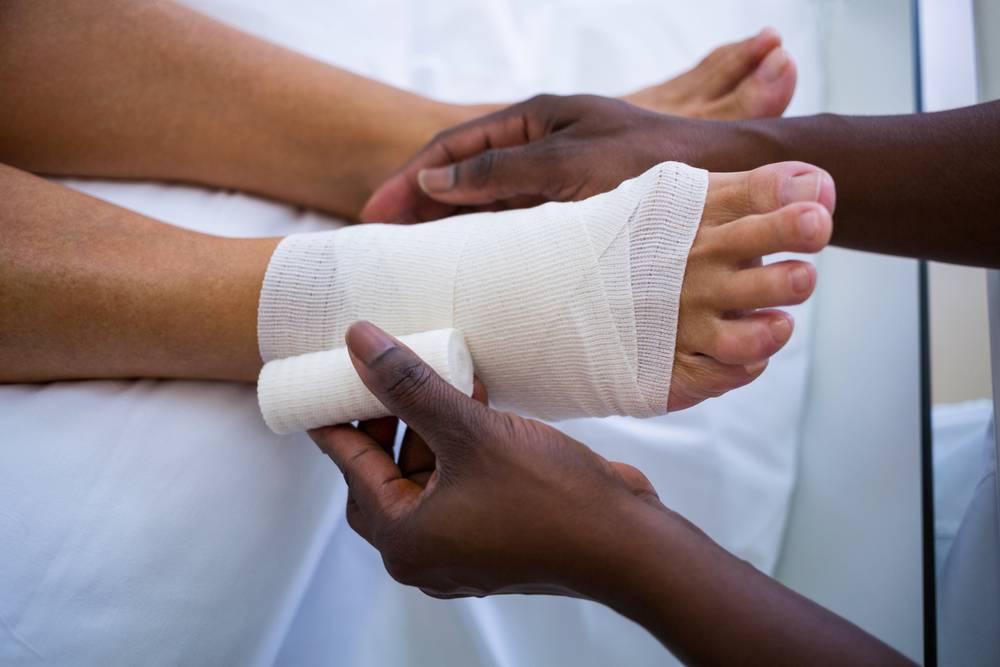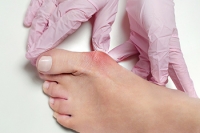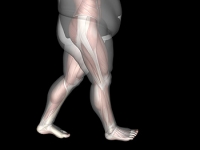 An open sore on the foot is known as a foot ulcer. It can be common among diabetic patients who have cuts on their feet, which they may not be aware of. A simple cut may develop into a foot ulcer as a result of neuropathy, which causes the inability to feel existing wounds, cuts, or scrapes on the feet. There are varying degrees of foot ulcers, which can range from a shallow wound that is on the surface to a deep wound involving the tendons and bones. Any type of wound on the foot needs prompt medical attention, and this may prevent a foot ulcer from developing. A wound on the foot is treated by cleaning out debris that may be inside of it. This is followed by tightly wrapping it with a bandage that can protect the foot, and it is beneficial to elevate it as often as possible. The more shallow the wound is, the greater the chances of a complete healing is possible. If you have a foot wound, please consult with a podiatrist who can offer the correct treatment methods for wound care.
An open sore on the foot is known as a foot ulcer. It can be common among diabetic patients who have cuts on their feet, which they may not be aware of. A simple cut may develop into a foot ulcer as a result of neuropathy, which causes the inability to feel existing wounds, cuts, or scrapes on the feet. There are varying degrees of foot ulcers, which can range from a shallow wound that is on the surface to a deep wound involving the tendons and bones. Any type of wound on the foot needs prompt medical attention, and this may prevent a foot ulcer from developing. A wound on the foot is treated by cleaning out debris that may be inside of it. This is followed by tightly wrapping it with a bandage that can protect the foot, and it is beneficial to elevate it as often as possible. The more shallow the wound is, the greater the chances of a complete healing is possible. If you have a foot wound, please consult with a podiatrist who can offer the correct treatment methods for wound care.
Wound care is an important part of dealing with diabetes. If you have diabetes and a foot wound or would like more information about wound care for diabetics, consult with Brent Harwood, DPM from Southeast Podiatry. Our doctor will assess your condition and provide you with quality treatment.
What Is Wound Care?
Wound care is the practice of taking proper care of a wound. This can range from the smallest to the largest of wounds. While everyone can benefit from proper wound care, it is much more important for diabetics. Diabetics often suffer from poor blood circulation which causes wounds to heal much slower than they would in a non-diabetic.
What Is the Importance of Wound Care?
While it may not seem apparent with small ulcers on the foot, for diabetics, any size ulcer can become infected. Diabetics often also suffer from neuropathy or nerve loss. This means they might not even feel when they have an ulcer on their foot. If the wound becomes severely infected, amputation may be necessary. Therefore, it is of the utmost importance to properly care for any and all foot wounds.
How to Care for Wounds
The best way to care for foot wounds is to prevent them. For diabetics, this means daily inspections of the feet for any signs of abnormalities or ulcers. It is also recommended to see a podiatrist several times a year for a foot inspection. If you do have an ulcer, run the wound under water to clear dirt from the wound; then apply antibiotic ointment to the wound and cover it with a bandage. Bandages should be changed daily and keeping pressure off the wound is smart. It is advised to see a podiatrist, who can keep an eye on it.
If you have any questions please feel free to contact our offices located in Fairhope, Brewton, and Atmore, AL. We offer the newest diagnostic and treatment technologies for all your podiatric needs.








